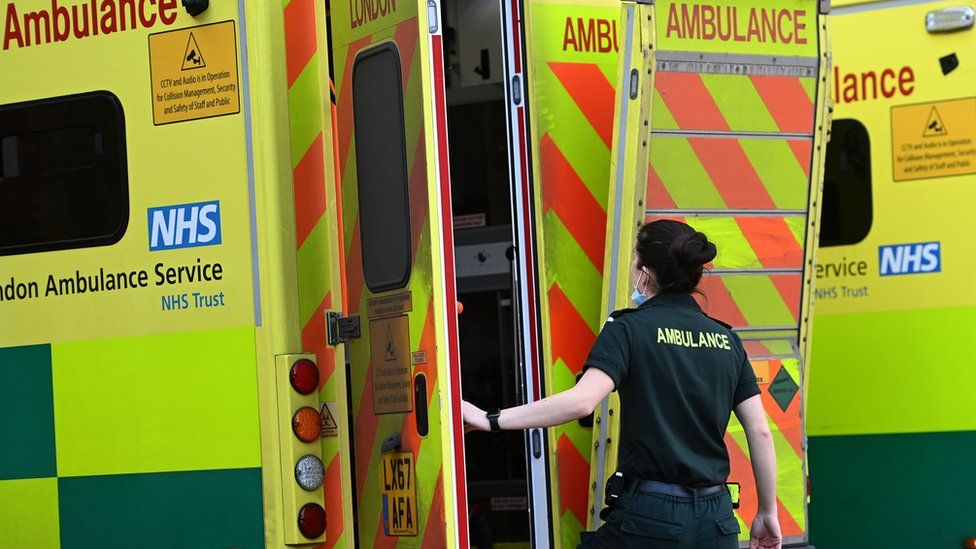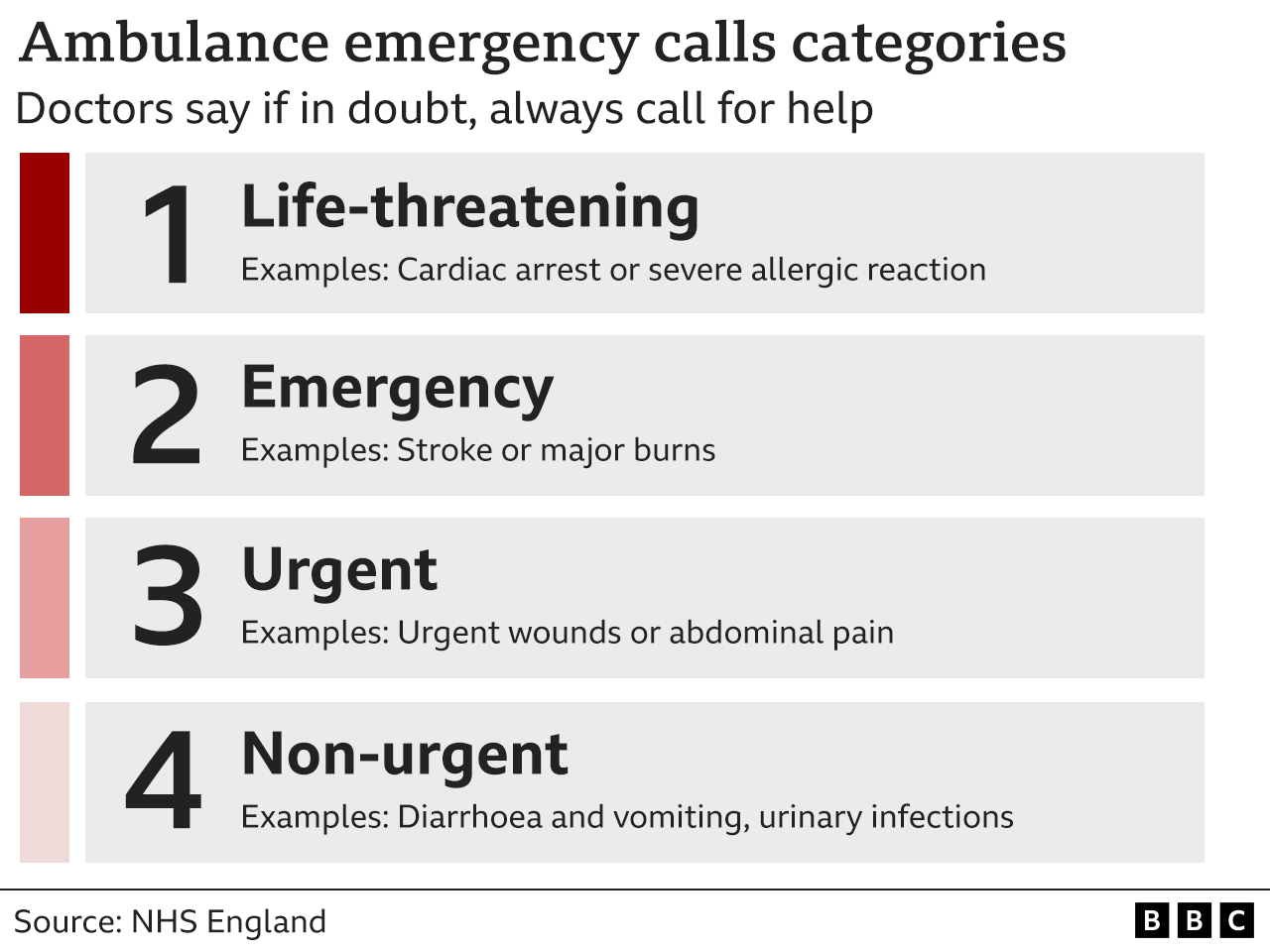 Shutterstock
ShutterstockTens of thousands of ambulance workers, including paramedics and call handlers, are set to strike in England and Wales on Wednesday over pay.
The impact upon services will vary by region, but extensive disruption is expected.
So, if you have an emergency on strike day, what should you do and what care can you expect?
What if I need to call 999?
If in need, do call. There will still be staff answering emergency calls and sending out some ambulances.
All Category 1 calls – classed as the most life-threatening situations, such as cardiac arrest – will be responded to by an ambulance.
However, conditions which are serious but not judged to be immediately life-threatening – which could include some people who may be having a stroke – might not be immediately attended to by emergency teams.
Some ambulance trusts have agreed exemptions with unions for specific incidents within this category – known as Category 2 calls.
Urgent problems that fit into Category 3 – such as a woman in late-stage labour – will not be prioritised.

Those who have a fall, or suffer other minor injuries which are not perceived to be life-threatening, are unlikely to receive 999 care. In such situations, some NHS trusts are urging people to use their own transport to get to hospital or take a taxi.
- Why are nurses and ambulance staff striking?
What about my GP or NHS 111?
Do still use these services for assistance. GPs and 111 call handlers are not striking, but bear in mind they are likely to be busy.
Pharmacies may also be able to provide help and advice for certain conditions.
How is the NHS preparing to protect patients?
Hospitals have already been asked to free up any beds they can, by discharging those patients who can safely leave.
It should help activity flow more smoothly in hospitals – and prevent bottlenecks.
For example, ambulances are sometimes forced to wait to handover their patients because there is no room inside the hospital. Health chiefs have asked hospital trusts to ensure measures are in place on Wednesday to enable all ambulances to handover patients no more than 15 minutes after arrival.
Is the army stepping in?
Troops from the Army, Navy and RAF will be deployed to alleviate the consequences of strike action.
Some 600 members of the armed forces are due to take on driving roles – transporting patients with less urgent conditions to and from hospital – and 150 personnel will provide logistical support.
Community first responders will also be used to help manage demand for medical care.
What’s happening in my area?
Not all unions are striking for the same hours of Wednesday. And it is difficult to say how many workers are striking at each individual service. In some areas, such as the East of England, there is no current plan to strike.
You can use our interactive tool to find out which unions are on strike at your ambulance service:
Your device may not support this visualisation
What if I have a medical appointment on strike day?
Everyone who has an appointment should attend as planned unless your local NHS provider has contacted you to reschedule. If we have not contacted you, please attend your appointment even if your trust is affected by strikes.
How can the general public help?
The NHS is asking people to use services wisely during industrial action and take steps to help ensure care is available to patients who need it most.
NHS Medical Director Professor Sir Stephen Powis said: “People can help by taking sensible steps to keep themselves and others safe during this period and not ending up in A&E – whether that is drinking responsibly or checking up on a family member of neighbour who may be particularly vulnerable to make sure they are ok.
“NHS staff have worked hard to minimise disruption but it is inevitable as with any industrial action that we will see an impact on services but it is vital if you need lifesaving care, to continue to come forward.”
The Welsh Ambulance Service advises:
- Stock up on prescription medications and over the counter remedies for common ailments
- Ensure you have adequate first aid kit supplies for minor injuries at home
- Take extra care during the cold weather to avoid slips, trips and falls
-
Hospitals told to free up beds for ambulance strike
-
3 days ago

-
-
Make firm promise on ambulance pay, says union boss
-
1 day ago

-
Related Internet Links
-
NHS England
